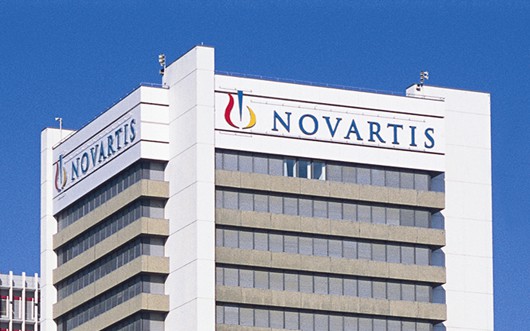
Novartis has claimed an EMA approval for VEGF inhibitor Beovu, its new drug for a leading cause of blindness that is competing with Bayer’s big-selling Eylea product.
Beovu (brolucizumab) is the first anti-VEGF treatment to demonstrate superior resolution of retinal fluid compared to Eylea (aflibercept) in patients with wet age-related macular degeneration (AMD), according to Novartis.
Shares in Bayer fell a couple of points following Novartis’ announcement, as investors digested the news that its brand will soon face a second front of competition to Eylea following the approval of Beovu in the US last year. It’s due for launch in Europe in the second quarter.
Novartis and partner Roche have been head-to-head with Bayer in the wet AMD market for years, with Eylea (aflibercept) squaring off against Novartis’ older drug Lucentis (ranibizumab), the first VEGF inhibitor for wet AMD to reach the market.
Beovu represents Novartis’ attempt to defend its wet AMD franchise as Lucentis starts to decline, squeezed by Eylea – which is also sold by Regeneron – as well as off-label use of Roche’s cancer drug Avastin (bevacizumab).
Novartis’ sales of Lucentis managed a slight gain overall in 2019 to just over $2bn, but fell slightly in the fourth quarter. That decline is expected to accelerate sharply once it loses patent protection later this year in the US and in 2022 in Europe.
Roche – which sells Lucentis in the US – made $1.83bn from the product in 2019, but Eylea is still the dominant player with Regeneron reporting $4.64bn in US sales last year. Bayer hasn’t reported its fourth-quarter results yet, but made $1.8bn from Eylea in other markets in the first nine months of the year.
“We believe that Beovu, and its ability to resolve fluid, brings great therapeutic value that will help physicians optimise treatments for patients based on disease activity,” said Marie-France Tschudin, president of Novartis Pharma.
The company is also trumpeting Beovu’s less frequent dosing schedule compared to Eylea. Eligible wet AMD patients can start on a three-month dosing interval immediately after a loading phase, which compares to four- to eight-week dosing with Eylea and monthly dosing with Lucentis.
Meanwhile, Novartis is running another head-to-head study of Beovu versus Eylea called TALON that will compare the two drugs on clinical endpoints including visual acuity and treatment interval duration.
The new drug made $35m in the fourth quarter following its launch in the US in October, which Tschudin said was “a great start” with 84% of retina specialists having Beovu “in their fridge”.
“What we hear the most is that physicians are incredibly impressed with Beovu’s drying properties and with the efficacy,” she said on the company’s fourth-quarter results call.
Novartis thinks the product will gather further momentum since it was awarded a permanent J-code from the US Center for Medicare and Medicaid Services (CMS) from 1 January, which will facilitate reimbursement by payers.




